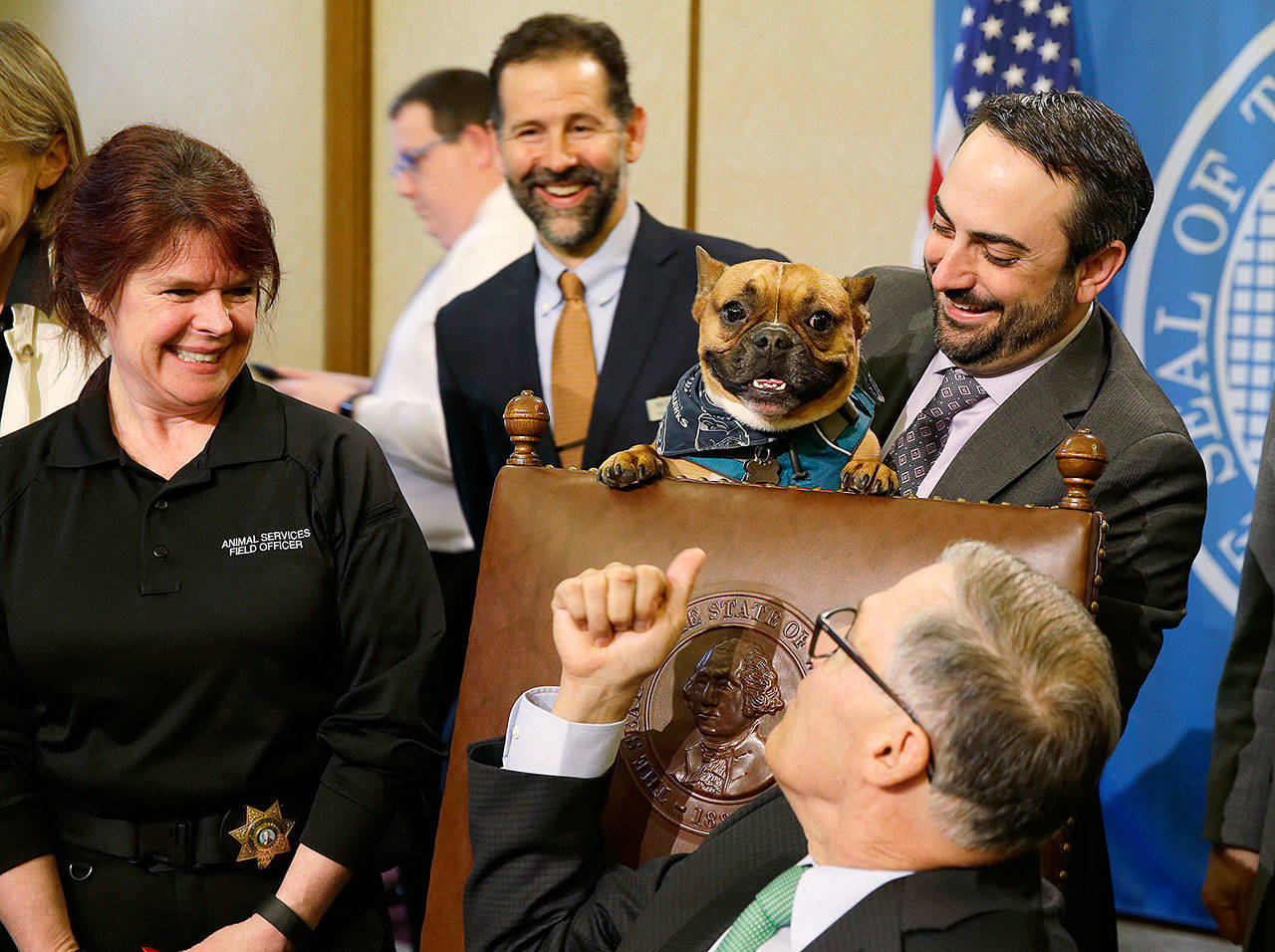By The Herald Editorial Board
Depending on which fellow Democrat is speaking, the resignation last week of state Sen. Guy Palumbo, D-Maltby, is either a win or a loss for the Senate’s Democratic majority. But Amazon, whom Palumbo will be rejoining as lobbyist — officially as director of public policy for Washington state — obviously views it as a win.
Palumbo, a moderate Democrat, was praised by many following his announcement that he was cutting short the term he won in 2016, following three legislative sessions. His contributions this session included successful work on legislation that adopted a 100 percent clean electricity goal; higher education grants for low-income students that pay most or all of their costs; and a long-term care trust account program supported by payroll deductions, The Herald’s Jerry Cornfield reported Saturday. Palumbo was less popular among some in his caucus for his support of charter schools and lack of support for a capital gains tax.
However, Palumbo’s departure from the Senate to serve in “the role I cherish most” as a “husband and father” doesn’t mean he will be completely absent from Olympia in coming years, especially during legislative sessions. And that, coming so soon after his resignation, could be a problem.
The so-called revolving door between public service and companies, lobbyists and advocacy firms — at both a state and national level — presents concerns for transparency in government. It risks the appearance that former officials might provide a benefit to their new employers by way of knowledge gained during their public service. And it provides a potential advantage in access and influence through a former official to that company or lobbying firm.
The appeal of hiring someone who knows both the ropes and the players in Olympia to lobby for or against legislation, policy or funding is easily understood. The potential to muddy government transparency and gain access not afforded the public is also simple to grasp.
Washington state, as with about 40 other states, has some restrictions on lobbyists’ access to lawmakers and state agencies.
Under current state law, former state lawmakers and other state officials must wait a year before accepting employment or compensation related to negotiating or administering contracts worth more than $10,000; and must wait two years before having an interest or control of a grant or contract approved or funded by state government.
The state law, however, does not prevent former lawmakers or officials from joining lobbying firms or advocating on behalf of companies and pursing policy before lawmakers or state agencies.
State Attorney General Bob Ferguson requested legislation this session to slow the revolving door, setting a one-year “cooling off” period for numerous state officials and employees who seek work as paid lobbyists. Legislation in both the House and Senate also would have required disclosure forms from those officials and employees upon leaving office that would be posted on the state Executive Ethics Board’s website.
Each bill received public hearings in committee, but neither advanced.
None of this is to imply that Palumbo — or any other former official who finds employment lobbying his or her former peers — is necessarily acting against the public interest. However, they are being paid to act in their employer’s interest.
In this regard, the state’s reputation for public integrity is far from stellar.
Washington state was judged as having “one of the cleanest dirty shirts” for integrity in The Center for Public Integrity’s 2015 report card. It finished eighth among the 50 states but received a D-plus grade, receiving F’s and D’s on a number of measures, including public access to information (see lawmakers attempts to excuse themselves from the Public Records Act); executive accountability; civil service management, ethics enforcement and lobbying disclosure.
A “cooling off” period isn’t a guarantee of transparency. Congress has such a law. Even so, Washington, D.C.’s K Street — home to the nation’s largest lobbying firms — added a healthy roster of former members of Congress following the 2018 elections, Republicans and Democrats alike. Often firms will hire former lawmakers as “shadow lobbyists” who advise others in the firm while they wait out their time-out.
Still, a breather between public service and corporate advocacy — along with acknowledgment of the new employer — can bring more accountability than now available.
And appearances matter.
Kathy Sakahara, a volunteer lobbyist with the League of Women Voters of Washington, explained why during the public hearing in January for the Senate version of the “cooling off” bill:
“We know that a major obstacle to people getting involved in government and voting is the perception that the people with the money run everything,” Sakahara said.
Fair or not, that perception persists. Lawmakers — and former lawmakers — need to do what they can to work against it.
Talk to us
> Give us your news tips.
> Send us a letter to the editor.
> More Herald contact information.

























